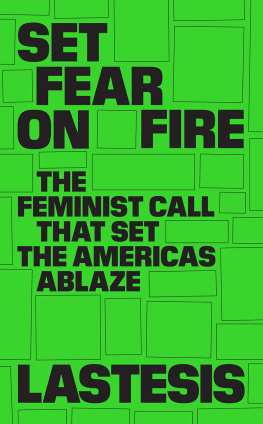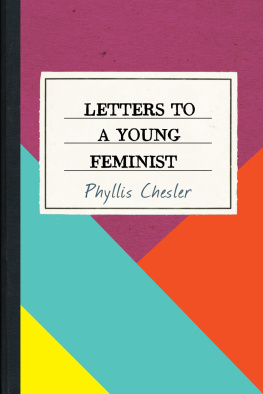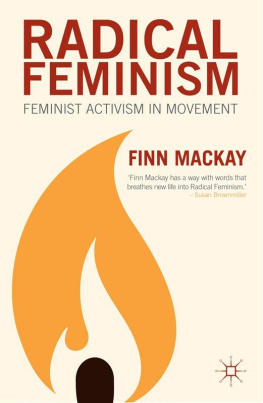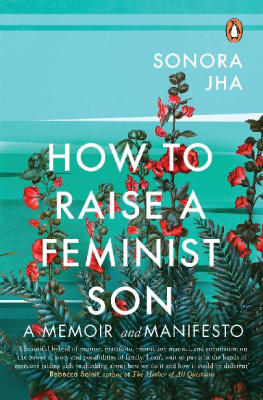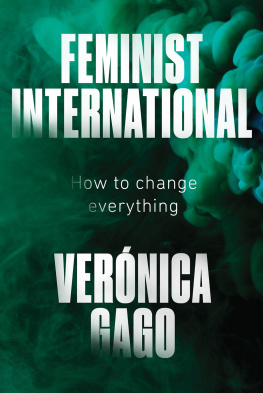Contents

Set Fear on Fire
Set Fear on Fire
The Feminist Call
That Set the Americas Ablaze
LASTESIS
Translated by Camila Valle

First published in English by Verso 2023
Translation Camila Valle 2023
First published as Quemar el miedo LASTESIS, Editorial Planeta
Mexicana, S.A. de C.V., 2021
In collaboration with Alejandra Carmona L.
By agreement with Pontas Literary and Film Agency
Preface to the English edition LASTESIS 2023
All rights reserved
The moral rights of the author have been asserted
1 3 5 7 9 10 8 6 4 2
Verso
UK: 6 Meard Street, London W1F 0EG
US: 388 Atlantic Avenue, Brooklyn, NY 11217
versobooks.com
Verso is the imprint of New Left Books
ISBN-13: 978-1-83976-480-6
ISBN-13: 978-1-83976-482-0 (US EBK)
ISBN-13: 978-1-83976-481-3 (UK EBK)
British Library Cataloguing in Publication Data
A catalogue record for this book is available from the British Library
Library of Congress Cataloging-in-Publication Data
A catalog record for this book is available from the Library of Congress
Printed and bound by CPI Group (UK) Ltd, Croydon, CR0 4YY
Table of Contents
Preface to the
English-Language Edition
Set Fear on Fire! was a whirlwind that we wrote very quickly, what seems like long ago. On a calendar, a little over a year may not seem like much, but the path we have traveled as a collective has felt like a lifetime. Plebiscites, municipal elections, parliamentary elections, presidential elections, and the current rewriting of the Chilean Constitution via a constitutional convention assembly have all marked a profound period of social, political, and cultural changes. Today we begin to bid farewell to a murderous, rapist, fascist government and to enter a self-proclaimed feminist era. Using every platform we have, including the new edition of this book, we repeat: The revolution and the future are, and will be, feminist.
We fervently believe that this applies everywhere. This is the beauty of being able to translate our ideas and struggles into another region, another language, another culture. In this English-language edition, our bodies remain in the South, but our convictions and many of our uncertainties migrate to the North, that extractivist Global North. Our words migrate together with all our compaeras and compaeres who must move North to survive, to that Global North that rejects, excludes, persecutes, tortures, deports, kills. We migrate with this book to nourish bridges and create dialogues with those who do not share our tongue but who nevertheless share our struggleand if they dont, who must learn about and ally themselves with our struggle. With this edition, we demand freedom of movement, the abolition of borders, the right to a life free from violence, and the disarmament of all the worlds gatekeepers.
LASTESIS collective
The experience of one is the experience of all.
The isolation of our feelings and experiences has allowed the patriarchy to take us by surprise, alone and anguished. We can defend ourselves from patriarchal cages by genuinely internalizing empathy and sisterhood, inextricably tied to the collective.
Its not me. Its not my fault. Im not the only one.
Its not depression, its capitalism and the patriarchy.
We are four, but we are certain that through us move the same historical violences that compel us to tell stories like those of so many others.
Thus, we have decided to write this book as an us. Every time we share a personal story, we see in the us a feminist political stancethat is, a necessary exercise of putting ourselves in the place of another, understanding personal experiences as collective life.
We have been abandoned by our father.
We have been abandoned by our mother, even when living with her.
We have grown up alone because our mom had to take on more than one role.
We are the daughters of a father who committed violence against our mother.
We have been abused.
We have been followed by cars on the street.
We have been afraid to walk down the street during the day.
We have been afraid to walk down the street at night.
We have been confronted by a man masturbating next to us on the bus. Whether we were nine or we were twenty.
We have been raped.
We have been made invisible.
We have earned less than a man for the same work.
We have had to listen to a man explain, condescendingly, something we already know.
We have seen how our ideas are only heard through the voice of a man.
We have been attacked for not being heterosexual.
We have been left without family for defending who we are.
We have given birth.
We have raised children alone. Studied and raised children alone. Studied, worked, and raised children alone.
We have had abortions illegally and without dignity.
We have accompanied our friends through their abortions.
We have been rejected by our partners for having abortions.
We have been hit by an ex on the street.
We have suffered economic violence.
We have suffered obstetric violence.
We have suffered sexual-affective violence.
We have worked three full days in the space of one.
We have been undocumented immigrants.
We are daughters of political refugees.
We have been born in exile and we have grown up in exile.
We choose art as resistance.
We have been persecuted and subjected to violence for speaking our minds.
We keep each other safe.
We know that we have been lucky and privileged in ways that others have not, because we are alive.
We refuse to be complicit in all types of patriarchal violence, oppression, and injustice, the same kind we will expose in this book. You will also read the vulnerability in these storiesstories of the fires that make up our lives. Life is unfair from this side of the street, but to learn to show and denounce through art is to connect profoundly with emotions, both positive and negative, bound up with ideas. To work with emotions is a subversive gift to the world.
Subversion dipped in beauty is revolution.
Brief Conceptual Notes
before We Proceed
Woman
When we use woman, we are referring to all subjectivities who understand themselves as such, independent of anatomy.
Sexual Dissident
When we use dissident, we are referring to all subjectivities who identify as part of the LGBTQIA+ community.
Man
When we use man, in general, we are referring to the patriarchal manthat is, those who reproduce sexist violence at all levels.
Subjectivity
When we use subjectivity, we are referring to a persons construction and understanding of themselves, taking into account historical and social contexts.
Hegemony
When we use hegemony, we are referring to the absolute domination of something over something else.
Patriarchy
When we use patriarchy, we are referring to the social system that privileges men over women and other subjectivities.
Performance
When we use performance, we are referring to an act realized both by those who watch it and by those who participate in it. It takes place in a determinate space and time and, in our case, makes use of language and artistic tools.

